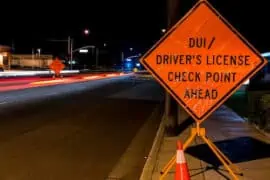If you want to regain your driver’s license, an insurance provider might need to file an SR-22 certificate on your behalf.
The SR-22 certificate is not an insurance policy. It is a legal document demonstrating that an individual received the minimum liability insurance needed to operate a vehicle legally.
Didn't You Try Our Quote Comparison Tool Yet? Save BIG by Doing it!
An SR-22 is sometimes called a “financial responsibility certificate.”
What Are the Differences Between SR-22 and Regular Insurance?
Here is a closer look at the differences between regular and SR-22 insurance.
Do I Need SR-22 Insurance for Mopeds or Scooters?
The SR-22 filing applies to any vehicle a motorcycle rider wants to use on roads, streets, and highways legally.
Relevant: Know the differences – Mopeds vs. Scooters.
If a state requires a driver’s license for mopeds and scooters, an SR-22 certificate is necessary to ride the vehicle off your private property. It may also be required to purchase insurance and file if you have a DUI accident on your driving record.
The current list of states that don’t require moped and scooter insurance includes the following:
- Arkansas
- Connecticut
- Delaware
- Florida
- Georgia
- Hawaii
- Idaho
- Indiana
- Kansas
- Kentucky
- Massachusetts
- Michigan
- Missouri
- Montana
- Nebraska
- Nevada
- New Hampshire
- New Mexico
- North Carolina
- Ohio
- South Carolina
- Tennessee
- Virginia
- Washington
- Wyoming
Why Is an SR-22 Certificate Necessary?
Insurance companies use SR-22 policies to ensure enough coverage is available for property damage and other financial obligations if an accident occurs. It delivers coverage to those harmed by the driver’s actions.
Most states charge between $15 to $25 as a filing fee to have the SR-22 certificate on file. Since this document indicates someone is a high-risk driver, insurance policy rates can rise significantly until the SR-22 is no longer necessary.
Use This Tool for Free and Save on Quotes!





